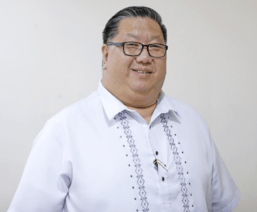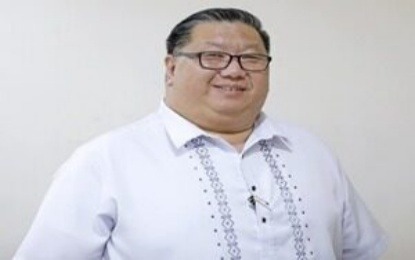FRESH VIEWPOINTS: A NEW PERSPECTIVE
By Brian James Lu

As President Ferdinand R. Marcos Jr. delivered his State of the Nation Address outlining his administration’s education agenda, youth leaders from across South and Southeast Asia gathered in Makati City to chart the future of education in crisis-affected countries.
Dubbed the Youth Workshop on the Futures of Education in South and Southeast Asia, the conference gathered dynamic young leaders from the Philippines, Vietnam, Indonesia, Timor Leste, and Sri Lanka. Representing civil society organizations such as the Network for Education Watch Indonesia, the Civil Society Education Partnership Timor Leste, and the University of Santo Tomas Student Teachers’ Association, they came carrying the voices, struggles, and aspirations of their communities—determined to shape a more inclusive and resilient future for education.
The workshop forms part of a broader initiative supported by Goldsmiths’ official development assistance program, which supports research aimed at advancing sustainable development and promoting global equity. In partnership with the Global Campaign for Education (GCE), E-Net Philippines, and the Asia South Pacific Association for Basic and Adult Education (ASPBAE), the initiative brought youth representatives together for three days to share experiences, envision the future of education in times of crisis, and define their role in shaping it. It also sought to identify concrete next steps, craft key messages for stakeholders, and strengthen networks among young people, civil society organizations, and education advocates across the Asia-Pacific region. The participants shared a clear vision: education systems across the region must be inclusive, resilient, and equipped to withstand the challenges of climate change, conflict, and displacement.
A central focus of the workshop was education in emergencies—a pressing global challenge. Just days before the event, a series of three typhoons and heavy monsoon rains in the Philippines flooded large parts of Luzon, forcing the suspension of classes for an entire week.
The participants envision an education system that is truly accessible to all—one that goes beyond the four walls of the classroom to create learning opportunities in diverse spaces, including remote communities, through strengthened alternative learning systems and community learning centers. They believe education must be inclusive, embracing learners of all backgrounds and providing resources tailored to different contexts and learning needs. It must also be resilient, able to adapt to the ever-changing challenges of the present and future.
The participants ask policymakers and education leaders to support fair and effective rules that ensure everyone has equal access to learning. They also stress that government agencies, schools, and the public need to fight against corruption and treat education as a basic right, making sure teachers are paid fairly for promoting new ways of learning both online and in person. They stress that funding for education should gradually rise to ensure free, fair, high-quality, strong, gender-sensitive, culturally aware, and sustainable public education systems, with students taking part in planning and decision-making about the budget at their schools.
They bring attention to the participation of all sectors in policymaking and governance, which must be strengthened through a whole-of-school approach, building capacity at every level and empowering learners and stakeholders to self-advocate. At the same time, cross-border collaboration and solidarity among youth-led and youth-focused organizations, including those representing marginalized youth, must be nurtured to foster learners motivated by collective action rather than individualism.
A highlight of the workshop was a visit to the Technical Education and Skills Development Authority (TESDA), where participants witnessed firsthand the government’s strong commitment to preparing Filipino youth for the demands of the modern workforce. Through state-of-the-art training facilities, advanced equipment, and industry-aligned programs, TESDA is equipping young Filipinos with cutting-edge technological skills—from robotics and automation to digital design and smart manufacturing—ensuring they are not only job-ready but also globally competitive in the 21st-century economy.
The participants, aged between 18 and 30, are already leaders in their own right—each carrying the passion and determination to create positive change in their communities. What is truly remarkable is that, despite coming from different nations and with diverse backgrounds and experiences, they share a common vision: an education system that is accessible to all, inclusive of every learner regardless of circumstance, and resilient in the face of challenges. This shared commitment reflects not only their leadership potential but also their deep understanding of the beneficial effects of education.
When youth leaders from different countries come together to discuss the pressing education issues affecting their communities, they bring with them a wealth of perspectives, experiences, and solutions that transcend borders. Their voices are especially vital, as they represent the next generation who will inherit the responsibility of shaping the future. For these young leaders, education is more than a right—it is the foundation upon which they can build their dreams, achieve success, and develop the skills necessary to lead their nations. By empowering them to speak, listen, and collaborate, we invest not only in their personal growth but also in the progress and resilience of our global society.
The Youth Workshop on the Futures of Education in South and Southeast Asia demonstrated that when young leaders are given a platform to engage, collaborate, and envision change, they can become powerful catalysts for transforming education. Their united call for accessible, inclusive, and resilient learning systems is not just a vision—it is a roadmap for building societies that thrive even in the face of crises. We invest in a generation ready to lead with courage, innovation, and solidarity by listening to their voices and acting on their recommendations.



